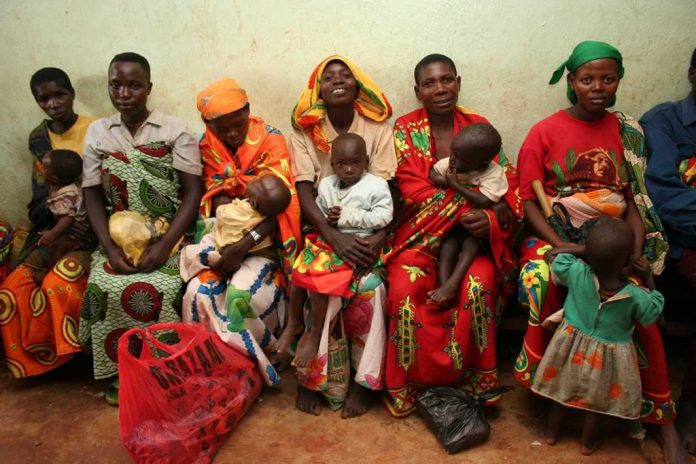The community you live in is part of who you are. Even if you don’t see your neighbors every day, you recognize that the decisions you make impact those around you. You’re all in it together, and you wouldn’t have it any other way!
Improving your community and helping others is often at the top of your mind. So when the phrase “community health” crossed your radar, you had to know more. What is community health? And how does it affect the lives of those in your area?
Community health is the intersection of healthcare, economics and social interaction. Unfortunately, many people are unaware of the role this type of healthcare plays in their everyday lives. Join us as we explore the impact of community health on your neighborhood—and what you can do to improve it.
What is community health?
Community health is a medical specialty that focuses on the physical and mental well-being of the people in a specific geographic region. This important subsection of public health includes initiatives to help community members maintain and improve their health, prevent the spread of infectious diseases and prepare for natural disasters.
“Working at the community level promotes healthy living, helps prevent chronic diseases and brings the greatest health benefits to the greatest number of people in need,” reports the Centers for Disease Control and Prevention (CDC).
Strong community health requires residents to look beyond themselves and take “collective responsibility,” says Caleb Backe, health and wellness expert at Maple Holistics. “It’s not just about the healthcare system, but focuses on the importance of leading a generally healthy lifestyle in order to protect the community as a whole.”
Community health is inextricably tied to individual wellness. “Good community health equates to healthy people, as a community is the ecosystem or environment in which people live,” says Thomas G. Bognanno, president and CEO of Community Health Charities. “It’s difficult to be healthy personally if your community is unhealthy.”
The far-reaching impact of community health
Community health flips the script on the old adage, “You take care of you; I’ll take care of me.” Instead, public health experts agree that the health of a community can have far-reaching—and sometimes surprising—impacts on individual health and beyond.
“Community health impacts everything—educational achievement, safety and crime, people’s ability to work and be financially healthy, life expectancy, happiness and more,” Bognanno says. “Health impacts every other facet of life, from a child’s ability to learn to an adult’s ability to work, so health is critical for education and financial well-being.”
The effect of health on quality of life can also impact the desire to participate in civic duties like voting, social functions and leisure activities, according to Healthy People 2020, an initiative of the Office of Disease Prevention and Health Promotion.
Communities that are attentive to public health can even reduce inequality among their residents. “[Community health] also helps to reduce health gaps caused by differences in race and ethnicity, location, social status, income and other factors that can affect health,” reports the CDC.
The consequences of neglecting community health
A lack of focus on community health can lead to a range of complex problems that aren’t easy to correct. For example, crime and safety issues that result from neglected community health can quickly becoming a self-perpetuating cycle. “Repeated exposure to crime and violence may be linked to an increase in negative health outcomes. Children exposed to violence may show increased signs of aggression starting in upper-elementary school,” reports Healthy People 2020.
Chronic diseases, such as diabetes and heart disease, can also increase if a community’s overall well-being is suffering. “An unhealthy community tends to be obese and struggle more from chronic diseases and other health challenges,” Bognanno says.
Chronic diseases like these not only reduce life expectancy, they have a dramatic effect on the economy. The CDC reports that 90 percent of the nation’s annual healthcare expenses are for people with chronic health conditions.
Curbing the spread of infectious disease is also a priority of community health programs. Without them, communities may find themselves battling outbreaks of illnesses that put vulnerable populations like the elderly at higher risk.
“If a community has to recover from an emergency event, such as a natural disaster, reducing the spread of disease becomes a crucial part of the recovery process,” Backe says.
Factors that improve community health
Improving community health is a huge undertaking that involves cooperation between public health workers, local government, volunteers and average citizens alike—and the end products of their work can take a lot of forms. “Communities benefit from walking trails and bike paths, from access to healthy food and playgrounds, from accessible healthcare services, schools and places of employment, as well as affordable housing,” Bognanno says.
Education also plays a large role in maintaining community health. Health fairs and advertising campaigns that expose the dangers of risk factors like tobacco exposure, poor nutrition and physical inactivity can raise awareness about the importance of choosing a healthy lifestyle. The CDC has also focused on promoting nutrition guidelines in schools and increasing the amount of physical education children receive.
Individuals can step up to the plate for their community’s health by volunteering at health fairs or blood drives, petitioning local officials to develop more green space and walking trails and maintaining their own health. “The collective responsibilities that individuals have for their communal health can lead to positive interactions within the community as a whole,” Backe says.
Take a stand for community health
What is community health? Now you know that it’s a vital component of public health—and it’s something every individual can play a part in improving. To learn more about how public health workers are improving the health of people across the nation.




















